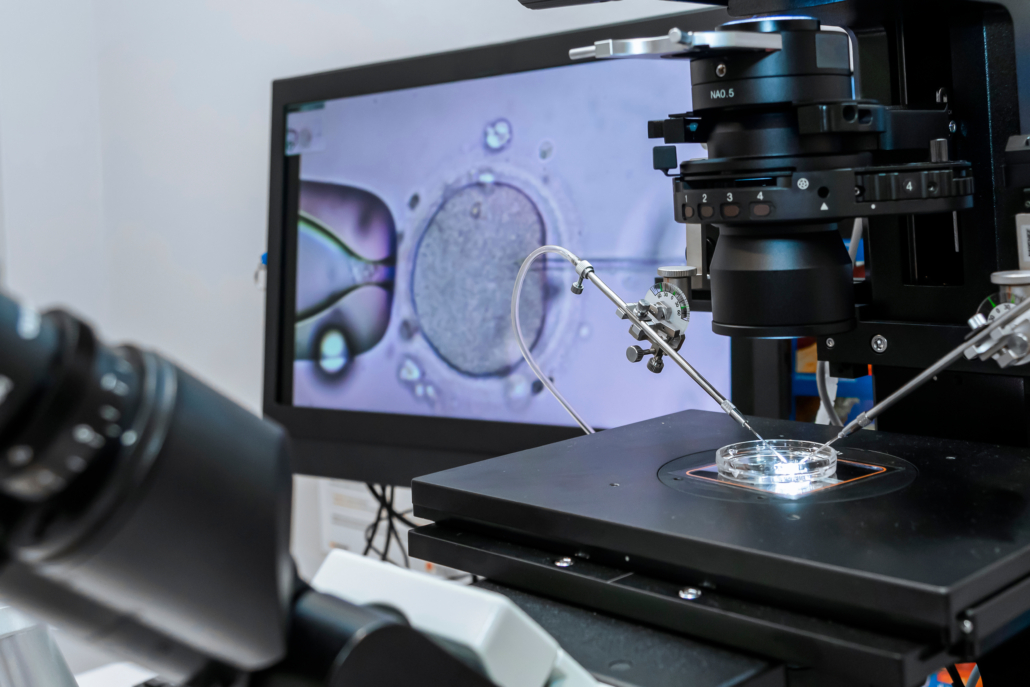
Eight healthy children born with DNA from three people
A landmark study in the UK shows that mitochondrial replacement therapy can prevent babies from inheriting diseases caused by mutant mitochondria.
The birth of eight healthy babies was announced by doctors in the United Kingdom after performing a groundbreaking procedure. Long-awaited results from three-person in vitro fertilization (IVF) suggest that mitochondrial donation may prevent the transmission of life-threatening conditions from their mothers. Four boys and four girls – including a pair of twins – were born to seven women and show no signs of the mitochondrial diseases they were at risk of inheriting.
Mitochondrial donation involves transfering the pronucleus of a fertilized egg containing faulty mitochondria into a donor egg cell with healthy mitochondria. The procedure is known as three-person IVF because the resulting children inherit nuclear DNA from their biological mother and father, as well as mitochondrial DNA from a different egg donor.
Mitochondrial DNA (mtDNA) comprises 16,569 base pairs and 37 genes, which encode 13 proteins of the respiratory chain, 2 rRNAs, and 22 tRNAs. All other known human mitochondrial proteins—totaling 1,136—are encoded in the nuclear genome and imported into the mitochondria after synthesis. Since mitochondria carry their own set of 37 genes, mutations in these genes can impair or completely disable mitochondrial function, with potentially catastrophic effects in all children a woman may have.
Mutations in mtDNA cause a range of severe syndromes, such as MELAS, LHON, and Leigh syndrome. Mitochondrial disease typically begins to show symptoms in early childhood, as energy-demanding organs like the brain, heart, and muscles begin to fail. About one in 5,000 newborns are affected. Some of these mitochondrial disorders present with characteristic clinical features, which can be further investigated through targeted molecular genetic testing. The diagnosis typically also involves proteomic tests, muscle biopsies, and assessments of energy metabolism and enzyme activities.
Newcastle landmark study
After the UK was the first country in the world to allow the procedure in 2015, the Human Fertilisation and Embryology Authority (HFEA) granted the first licence to a fertility clinic at Newcastle University in 2017. Similar experiments have previously been conducted in other countries with insufficient regulation and transparency.
The team of doctors now has presented its efforts in an article published in the New England Journal of Medicine. All eight babies were healthy at birth, as described in the accompanying Brief Report. One developed a urinary tract infection that was successfully treated, while another experienced muscle jerks that resolved without intervention. A third child was treated for elevated blood fat levels and an irregular heart rhythm – a condition believed to be linked to a pregnancy-related health issue in the mother. Genetic testing revealed that the babies had either no or very low levels of mutant mitochondria, some of which were transferred from the mother during the procedure. Although these levels are believed to be too low to trigger disease, the findings indicate that the technique may still require refinement.
The medical team reported that eight of the 22 patients became pregnant after undergoing mitochondrial replacement therapy, while one pregnancy is still ongoing. The oldest child is now over two years old, the youngest under five months.
While the initial results are encouraging, the long-term safety and effectiveness of mitochondrial replacement therapy remain under close observation. The children’s health needs to be continuously monitored to detect any delayed effects. If longer-term studies confirm the current findings, mitochondrial donation could become a standard reproductive option for families affected by mitochondrial disease. However, since the altered genetic material is passed on to future generations through female offspring, the method raises ethical questions.



 Roche
Roche Qiagen
Qiagen